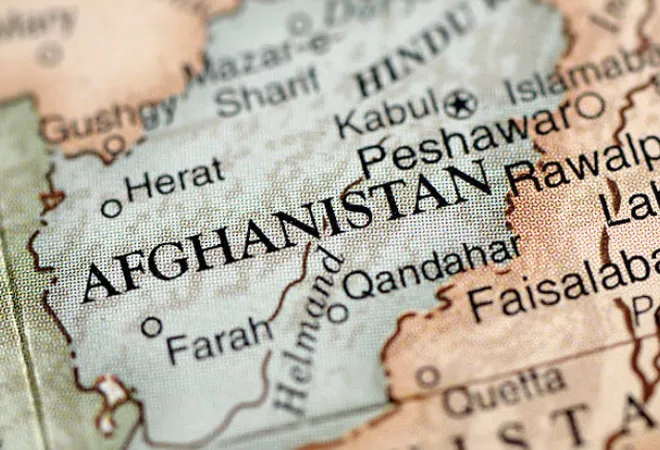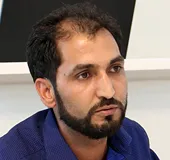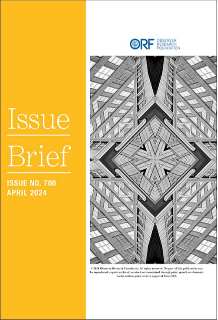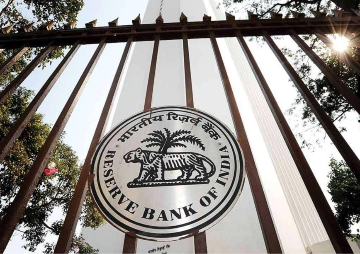
The third India-Central Asia Dialogue, held in India on 19 December, coincided with the meeting of the Foreign Ministers of the Organisation of Islamic Countries (OIC) hosted by Pakistan. However, in a show of increased coherence with India on regional challenges, the Foreign Ministers of the five Central Asian countries skipped the 17th Session of the Emergency Meeting of OIC Council of Foreign Ministers in Islamabad, and instead attended the dialogue in New Delhi. The foreign ministers opting to visit New Delhi instead of Islamabad reflected the increased convergence between Central Asia (CA) and India not only in new areas of cooperation, but also in dealing with Taliban.
Exploring ways to strengthen the bilateral relationship between CA and India, the third India-Central Asia dialogue not only discussed the traditional areas of commerce, capacity enhancement, and connectivity, but also the geostrategic and security implications of a Taliban-led Afghanistan on the region. The foreign ministers “reiterated strong support for a peaceful, secure and stable Afghanistan, while emphasising the respect for sovereignty, unity and territorial integrity and non-interference in its internal affairs.”
Afghanistan, terrorism a uniting force between India-Central Asia
After the breakup of the Soviet Union, the centuries-old cultural and commercial ties between India and Central Asia were once again rekindled to encompass geoeconomic and strategic relations. Though the ties with the newly formed Central Asian states faced challenges in terms of connectivity, New Delhi chose to take a ‘constructivist’ approach post 1991. Under this flexible approach, India’s relations with Central Asia were not based exclusively on economic or security interests. India preferred to establish relations with certain states but interacted with each according to their identities. As the newly established Central Asian Republics (CAR) were reeling under economic crises, India provided the much-needed financial aid of US $10-15 million to the region. Then Prime Minister Narasimha Rao visited Uzbekistan and Kazakhstan in 1993, followed by Turkmenistan and Kyrgyzstan in 1995. New Delhi also revived its Indian Technical and Economic Cooperation (ITEC) programme to provide assistance as well as capacity building through training programmes, study tours, and technology transfers.
India preferred to establish relations with certain states but interacted with each according to their identities.
As the relations matured, connectivity for trade, especially exports of natural resources from CARs, became a reeling issue. As a result, the strategic, economic, and cultural interests remained severely curtailed. They were further stonewalled by Pakistan’s lack of willingness to allow India passage to Central Asia through its territory. Turkmenistan-Afghanistan-Pakistan-India (TAPI) gas pipeline has been stalled since 2006. Consequently, New Delhi tried new options to connect with the region via the Chabahar port in the Sistan-Balochistan province of Iran, for which, an MoU was signed in 2015. However, the Taliban’s takeover of Afghanistan with the covert support by the ISI and Pakistani Army has marred the prospects of Chabahar as India’s conduit to the region, though New Delhi can still reach out to Ashgabat—the capital of Turkmenistan. The security dilemma emanating from the Taliban-led Afghanistan have once again raised geosecurity and security concerns for both India and Central Asia countries like during the last decade of the 20th century.
Strategic and security experts have expressed concern that pan-Islamic groups will gain ground support from the new regime in Afghanistan and with a Taliban itself working in close tandem with Pakistan-backed militant groups, there are chances of spillover into India via the LoC. To tackle such a situation, India has increased surveillance along the LoC and upgraded its tactical preparedness to thwart Pakistan’s evil designs in Kashmir. Similarly, CARs will also face the heat of the Taliban as Tajikistan, Turkmenistan, and Uzbekistan share a 2,387-kilometre long spongy border with Afghanistan. Ever since the beginning of the military offensive by the Taliban in Afghanistan, thousands of civilians and even Afghan military personnel have crossed over this fragile border into these three CARs. Furthermore, the presence of terror groups like the Islamic Movement of Uzbekistan (IMU), Islamic Jihad Union (IJU), Jamaat Ansarullah, and the existence of some of the radical Central Asian ISIS fighters, who have joined the ranks of different terror groups in Afghanistan, have increased the region’s security concerns.
Ever since the beginning of the military offensive by the Taliban in Afghanistan, thousands of civilians and even Afghan military personnel have crossed over this fragile border into these three CARs.
Growing scepticism of Pakistan owing to its support to terrorism and curtailment of strategic, economic, and cultural interests have made the CARs rethink their regional strategy and take a fresh look at its growing convergence with India on geostrategic, geoeconomic, and security issues. CAR’s growing concerns about Pakistan were also apparent during the Shanghai Cooperation Organisation summit in Tajikistan. Tajik President Emomali Rahmon, while criticising the Taliban, asked Pakistan Prime Minister Imran Khan to pressurise the group for more guarantees for an inclusive government in Afghanistan. The cautionary approach to Pakistan was once again revealed when the CA foreign ministers preferred to attend the third India-Central Asia Dialogue with India over the OIC summit hosted by Pakistan.
Growing reliability
While connectivity issues remain till today, India has been looked at as a reliable partner by the CARs even during last 30 years. However, the relationship got a fillip after 2015, when Prime Minister Narendra Modi visited all the Central Asian countries and boosted the momentum of India’s “Connect Central Asia” policy of 2012. After this visit, India has signed a defence and military technology agreement with Kazakhstan, a joint working group on counterterrorism and security cooperation with Uzbekistan, a defence cooperation agreement with Kyrgyzstan and Turkmenistan besides other trade and investment agreements. This has marked the mutual desire of India and the CARs to strengthen their bilateral and trilateral arrangements. India’s perception as a reliable partner got further cemented during the regional security dialogue hosted by India’s NSA, when all the CARs and even Russia and Iran participated, with the notable exclusions being China and Pakistan. India’s External Affairs Minister S. Jaishankar visited the region three times within a of four months and extended a credit line of US $200 million to Kyrgyzstan for the support of development projects. During the 6th Foreign Ministers’ Conference on Interaction and Confidence-Building Measures in Asia (CICA) held in Kazakhstan, Jaishankar highlighted the role of connectivity in regional stability but also admonished China’s Belt and Road Initiative (BRI) for its parochial interests in CA, which also violates India’s sovereignty via the CPEC in POK. The CARs are also witnessing growing social discontent against China for the latter’s treatment of their ethnic brethren in the volatile Xinjiang and Beijing’s growing assertions in Central Asia.
India has signed a defence and military technology agreement with Kazakhstan, a joint working group on counterterrorism and security cooperation with Uzbekistan, a defence cooperation agreement with Kyrgyzstan and Turkmenistan besides other trade and investment agreements.
The CARs also want to control China’s colonial ambitions by diversifying their energy exports. The growing need of diversification has already forced some of the CARs like Uzbekistan and Turkmenistan to hold bilateral talks with the Taliban and restoration of their missions in Kabul. Both these countries are dependent on a stable Afghanistan for the continuity of their trade and energy links. Uzbekistan requires cooperation of the Taliban for South-Central Asian economic connectivity, trade, and transit, while Turkmenistan needs security for its export of natural resources and to diversify its export energy markets.
Such bilateral approach toward the Taliban for the individual geostrategic and economic concerns may seem a good strategy, but that do not rule out the prospect of terrorism emanating from Afghanistan snowballing in Central Asia. A coherent approach is needed from both regions. The CARs should keep in mind the call for immediate aid to the Afghan people and formation of an inclusive government before shaping their bilateral linkages with the Taliban.
The views expressed above belong to the author(s). ORF research and analyses now available on Telegram! Click here to access our curated content — blogs, longforms and interviews.




 PREV
PREV


